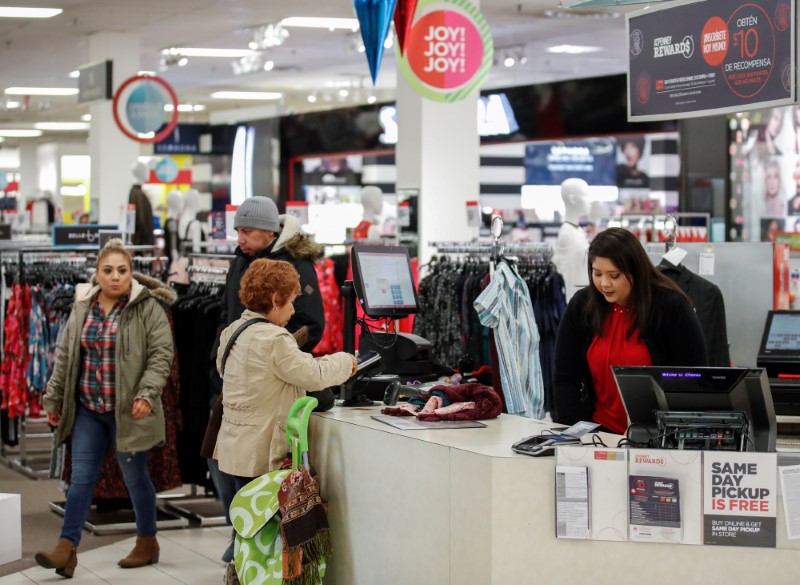WASHINGTON (Reuters) - U.S consumer confidence ebbed in June, with households a bit pessimistic about their short-term income prospects, potentially signaling a slowdown in economic activity later this year.
The Conference Board said its consumer confidence index fell to a reading of 126.4 this month from an upwardly revised 128.8 in May. The index was previously reported at 128.0 in May.
"While expectations remain high by historical standards, the modest curtailment in optimism suggests that consumers do not foresee the economy gaining much momentum in the months ahead," said Lynn Franco, the Conference Board's director of economic indicators.
Economic growth appears to have picked significantly early in the second quarter after hitting a soft patch at the start of the year. Gross domestic product estimates for the April-June period are as high as a 4.7 percent annualized rate. The economy grew at a 2.2 percent rate in the first quarter.
Economists said rising tensions between the United States and its trade partners could have contributed to the dip in confidence. The cutoff date for the survey was June 15. The United States is engaged in tit-for-tat import tariffs with major trading partners, including China, Mexico, Canada and the European Union.
"Consumer confidence is lower in June possibly due to the heated rhetoric over trade this month with consumers putting their future buying plans on hold," said Chris Rupkey, chief economist at MUFG in New York. "Real GDP may indeed reach almost 4 percent this quarter, but the outlook beyond the summer looks increasingly hazy and hard to read."
The survey's so-called labor market differential, derived from data about respondents who think jobs are hard to get and those who think jobs are plentiful, fell to 25.1 this month from 26.5 in May. This measure closely correlates to the unemployment rate in the Labor Department's employment report and is consistent with continued shrinking of labor market slack.
The labor market is viewed as being near or at full employment, with the unemployment rate at an 18-year low of 3.8 percent. But the tightening labor market has not spurred faster wage growth.
The Conference Board survey showed consumers a bit downbeat about their income prospects. The percentage of consumers expecting an improvement in their income fell to 18.8 percent in June from 21.4 percent in May. The share of those expecting a decrease rose to 8.7 percent from 8.0 percent last month.
Other data on Tuesday showed the S&P CoreLogic Case-Shiller composite index of 20 metropolitan areas rose 6.6 percent in April on a year-over-year basis after increasing 6.7 percent in March. An acute shortage of homes on the market and strong demand are keeping house prices elevated, though the momentum is slowing as mortgage rates rise.

"With mortgage rates set to rise over the remainder of the year, we expect house price growth will continue to slow," said Matthew Pointon, property economist at Capital Economics in New York. "But record low levels of inventory will also provide support to prices, and the slowdown will be gradual."